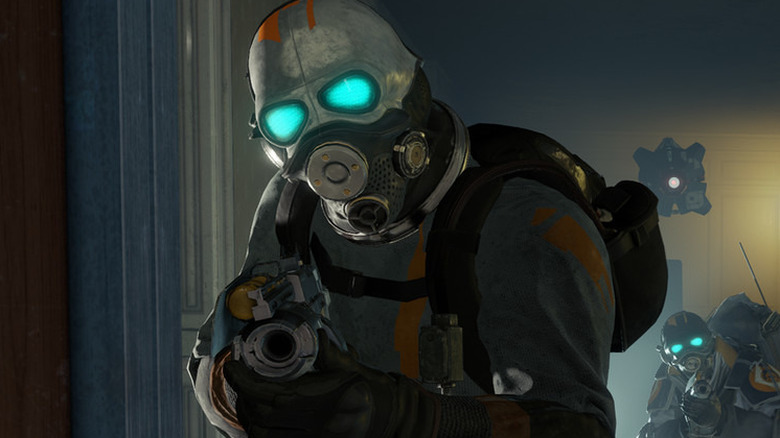Valve CEO Wants Your Brain To Control Your Console
In the world of game development, remaining on the cutting edge of new technology is one of the highest priorities. With VR gaming becoming more widely available in recent years, developers have been working to make gaming experiences become more immersive than ever before. For instance, Activision has filed a patent for a type of "haptic gun," which would make VR combat feel even more realistic. Meanwhile, Valve has been toying with a concept that could take feedback directly from the human brain and apply it to create unbelievable virtual worlds.
Even the head of Valve knows how wild this concept sounds. In speaking with New Zealand's 1 News, Gabe Newell said, "A lot of our product design discussions sound like science fiction."
Valve has been collaborating with OpenBCI, a company that doing extensive work in the field of brain-computer interfaces, or BCIs. In late 2020, OpenBCI announced Galea, a device which is designed to take biometric feedback from the user. This data will show the emotional state of the player, allowing the developer to piggyback off of this information. As explained by 1 News, "The readings can be used by developers to improve immersion and personalise what happens during games — like turning up the difficulty a bit if the system realises the player is getting bored." Using BCIs, Valve hopes to craft some never-before-seen experiences for virtual reality gamers. These new advancements will go far beyond what the human body can currently perceive with its own "meat peripherals," as Newell calls them.
However, the most interesting thing about this technology, according to Newell, is that it can theoretically be used to plant information and experiences into the players' mind. In theory, this process (which Newell compared to the virtual world of The Matrix) could create more visceral emotional responses from the player. It could also help developers to realize virtual worlds that are not bound by the limitations of reality. In fact, Newell believes that the games and experiences crafted with this new tech could potentially feel more real than reality.
Newell said, "So the visual experience, the visual fidelity we'll be able to create ... the real world will stop being the metric that we apply to the best possible visual fidelity ... The real world will seem flat, colorless, blurry, compared to the experiences you'll be able to create in people's brains."
Newell also admitted that there could be more sinister applications for this technology. In theory, users could be made to feel pain, depending on the information being fed to them. Such an advancement would certainly change the level of immersion in VR tech, but it would also open the door to some major ethical questions. Luckily for gamers, Valve doesn't seem to be interested in exploring that less savory route.
Aside from Valve's experimentation with BCIs, Newell also recently revealed to 1 News that Valve has many new games on the way. Whether or not these future titles will utilize Valve's latest research remains to be seen.

